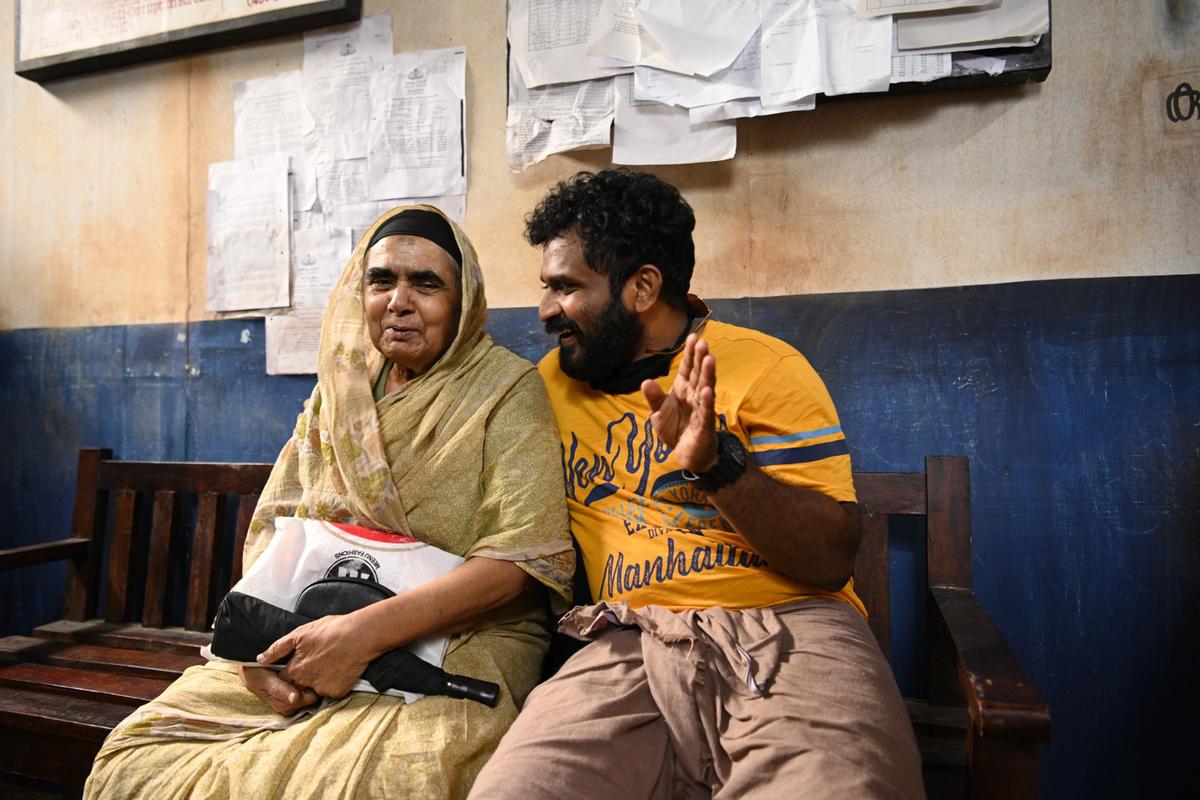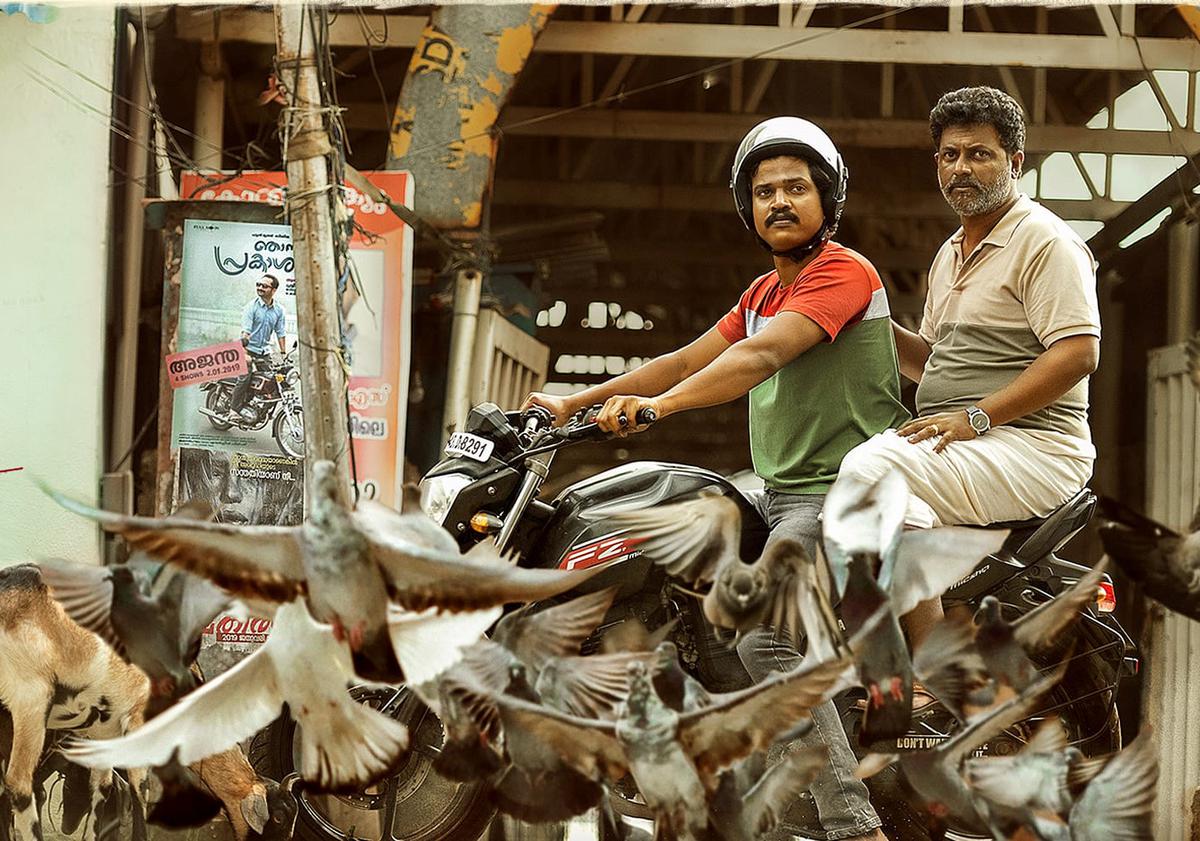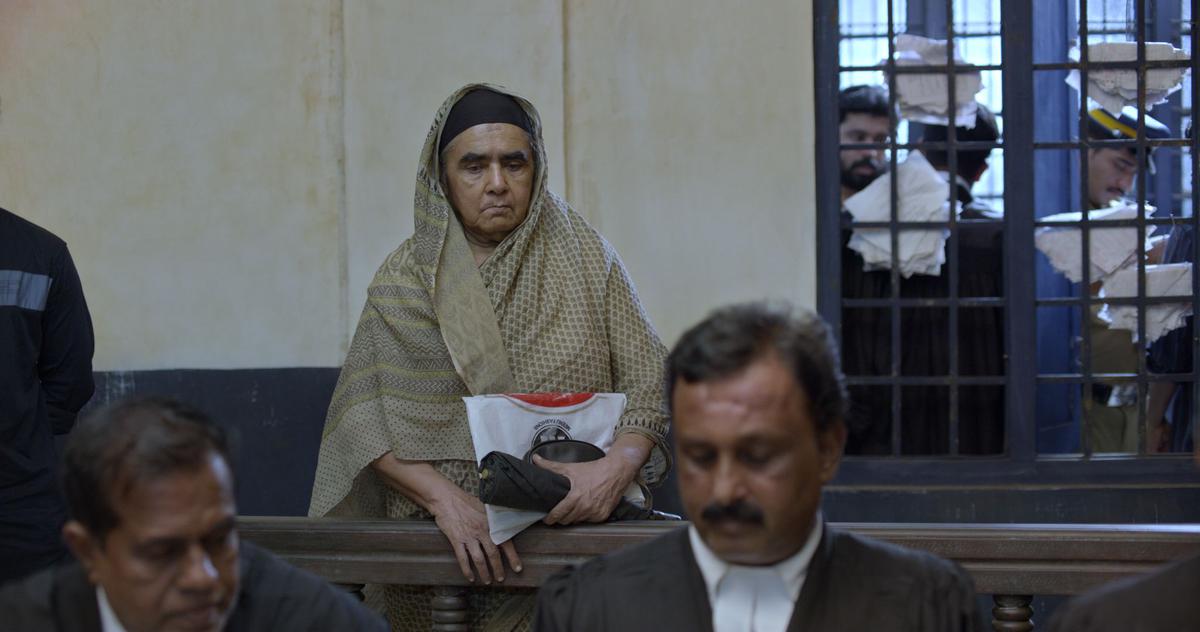‘I don’t know what is in store for the future. But I feel that I have done something in my life after making this movie.’ This is director Tharun Moorthy’s latest Facebook post about his new movie, Saudi Vellakka CC 225/2009. The filmmaker, who had a brilliant debut with Operation Java(2021), has struck gold at the box office with this heartwarming social drama.
“A film that connects with the audience seldom fails. We believe that has happened with Saudi Vellakka. If you love cinema, it will love you back. I enjoy the process of making a film. For me, Saudi Vellakka has been an emotional journey,” says the 33-year-old director.
Malayalam director Tharun Moorthy
| Photo Credit:
Special Arrangement
The film, inspired by a real incident, is a poignant take on how cases get dragged for years in Indian courts and how this affects the lives of the people involved. The case in this film is 14-years-old and the cause is just a vellakka (baby coconut). Aisha Ravuthar, an octogenarian, beats her nine-year-old neighbour, Abhilash, in a fit of rage, which she regrets later. Instigated by a few people, Abhilash’s family files a case.
Tharun says that it was director Ratheesh K Rajan who showed him a newspaper report about a case in Thiruvananthapuram involving an old woman and a 22-year-old youth that had been going on for years. “I collected the details and met the policemen and lawyers involved in the investigation and trial. It eventually led to Saudi Vellakka, of course, with changes in the original case and situations,” says Tharun.

Director Tharun Moorthy with actor Devi Varma on the sets of Saudi Vellakka
| Photo Credit:
Special Arrangement
He wanted a new face to play the aged woman and the hunt began much before he wrote the script, for, it was important to “get the right face for the role.” The search ended in yesteryear theatre actor Gracy John or Saudi Gracy, who hailed from Saudi near Kochi. “I didn’t know that a place called Saudi existed until then. I located the film in Saudi for her. It was her first film and she was very excited about it. We even did the look test; unfortunately, she passed away due to COVID-related complications. I was shattered because I couldn’t fulfil her dream. However, her family wanted us to make the film for her,” Tharun says.
Cinema beckons
Having grown up in a family where discussions centred around theatre, Tharun says that he got hooked to art at a young age. “I did plays in school, some of which were directed by my father. I wanted to be an actor and join the film institute in Pune. But my father said that life is the best teacher and my experiences should equip me to become an actor.” He continued his studies, finished engineering and taught at an engineering college. “But I couldn’t give up on my dream. So, I quit my job and decided to try my luck in movies. My wife [Revathy Roy] supported my decision. Within three years Operation Java happened!”
He had to find a new artiste, for which he met several theatre actors in and around Kochi. “Many of them were not in a position to do the role because of their health issues. At one point, I thought of casting someone familiar, like Urvashi chechi. However, my producer [Sandip Senan] said that even though her presence might bring in more business for the movie, we should keep looking for a new face since that’s what I had visualised. I don’t know how many producers would say that!”
He finally found his Aisha in Tripunithura-native Devi Varma, the surprise element of the movie, whose face Tharun accidentally saw in a friend’s WhatsApp status. “She was his grandmother. She is not an actor, does not speak the Kochi dialect and had serious health issues. She was reluctant to act. But I didn’t budge and she agreed. She even had COVID in between, but thankfully came back hale and hearty,” Tharun says.
Veteran actor Pauly Valsan dubbed for Devi, which some people have criticised. “I had decided on Pauly chechi from the beginning. Many pointed out that Pauly chechi’’s voice is familiar to the audience, that it doesn’t suit the actor. But I believe that only those who closely follow Malayalam cinema might feel so. It shouldn’t be a problem for the rest of the audience. Similarly, [actor] Srinda dubbed for Dhanya Ananya [who played Nasi, Aisha’s daughter-in-law], because she too was finding the Kochi dialect difficult,” he adds. There were dialect coaches for actors such as Binu Pappu and Lukman Avaran who do not belong to Kochi. “The dialect has a rhythm and we wanted to bring that aspect in their dialogue delivery,” Tharun says.

Lukman Avaran and Binu Pappu in a scene from ‘Saudi Vellakka’
| Photo Credit:
Special Arrangement
The film has over 50 new artistes, many of them from the theatre. Tharun says that when he writes a character he assigns a face to it and his casting director Abu Valayamkulam was left with the “tough job” of finding the actors, irrespective of whether they could act or not. In Saudi Vellakka, Abu had the help of Tharun’s father, Madhu Moorthy, a theatre person, who also appears in a small role.
Tharun says that he and script assistant Dhanush Varghese did a lot of research on the script, especially for the court scenes. “We had to keep it real and different from what people have seen in films such as Nna Thaan Case Koduand Vaashi. We met lawyers and court clerks for inputs, anecdotes, gossip… and prepared notes. I also watched courtroom dramas in other languages to understand how to make my film different and what layers can be added to it. My cousin, Suresh Ramachandran, a lawyer, who is highly critical of how court scenes are shown in our movies, guided me.”
Tharun adds that all his technicians and his team of directors could relate to his vision for the movie.
The director also makes note of Binu Pappu, who essayed a powerful character and was also the chief associate director. “He comes with so much of experience before and behind the camera. He stepped in when four of my assistants came down with COVID at the same time. I am a director who likes my artistes to improvise on sets whereas he gets things done quickly. That helped in finishing the project on time,” Tharun adds.

Devi Varma in still from ‘Saudi Vellakka’
| Photo Credit:
Hari Thirumala
The film was planned to reach theatres in May this year but the release was postponed. “It was a conscious decision because that was a phase when people were not coming into theatres.We didn’t want Saudi Vellakka to be rejected and so decided to take it to as many people as possible,” explains Tharun. The team went all out by creating a buzz on social media through posters, videos, backstories of the actors, etc.
Eventually the film got selected for the Indian Panorama section at this year’s International Film Festival of India in Goa and Dhaka International Film Festival.
So, as the director of back-to-back hits, what is the secret? “I follow my own protocols and believe that script is foundation. You have to keep polishing it and it can be a continuous process,” he signs off.
https://www.thehindu.com/entertainment/movies/tharun-moorthy-speaks-about-his-new-movie-saudi-vellakka/article66254172.ece”>
#Malayalam #director #Tharun #Moorthy #Saudi #Vellakka #emotional #journey
